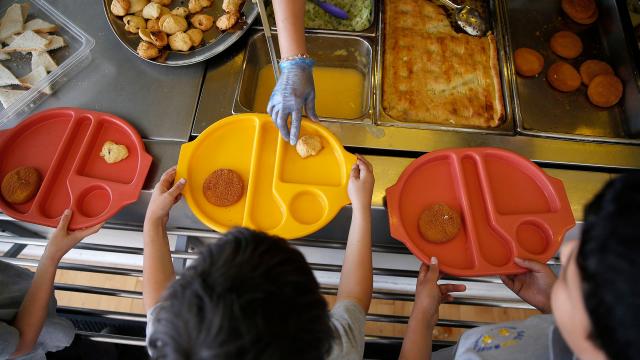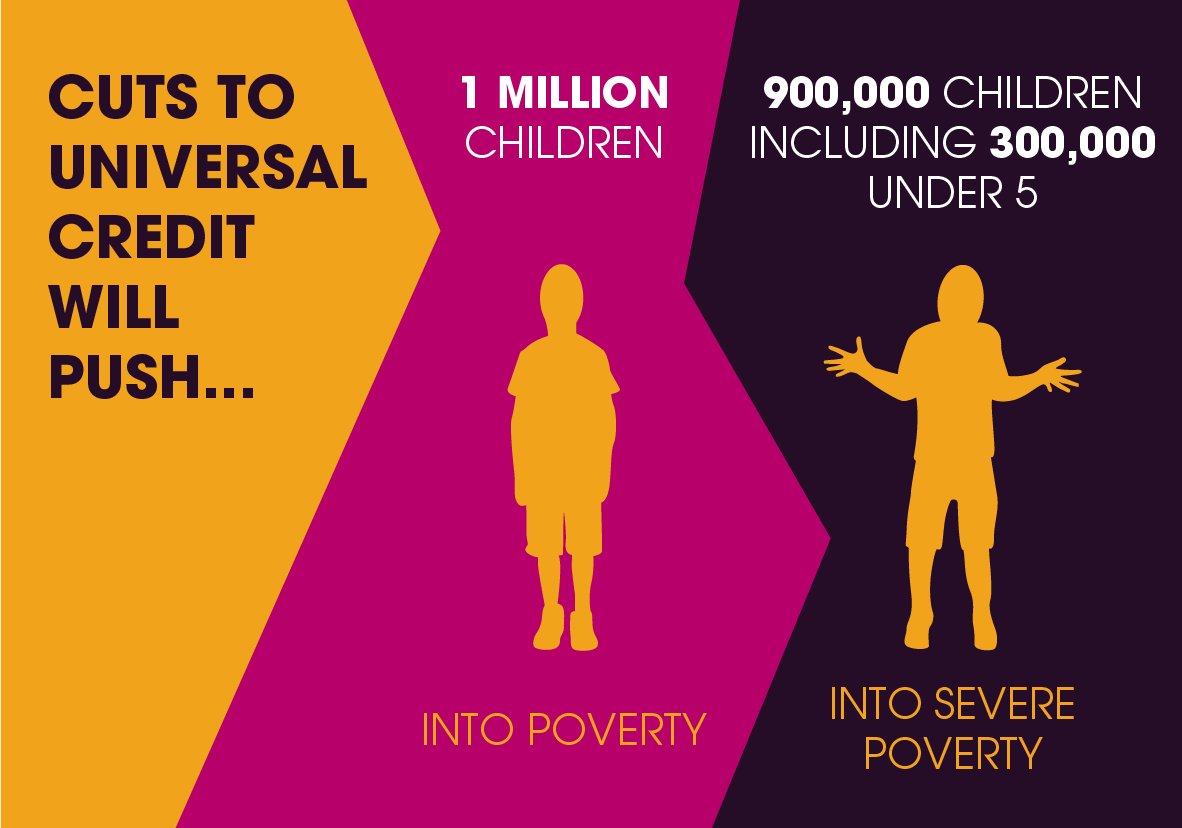
“Thatcher, Thatcher milk snatcher” was a familiar cry in the 1980s when the British prime minister took away free school milk for children. Now, PM Theresa May has earned an addition to her infamous catchphrase, “strong and stable”:
“Theresa May, strong and stable, stole the food from the children’s table.”
The Conservative government has announced that claimants of Universal Credit – the controversial new benefit being rolled out to replace a range of other benefits – will no longer be entitled to free school meals for their children beyond the first few years of infant school. Amidst an increasing number of UK benefit reforms plunging people further into poverty, the school lunch cuts have understandably been on the British front pages of late.
The measure will leave any family with a net annual income of less than £7,400 unable to claim a free lunch for their children during a school day. Around 1 million children are likely to suffer from this cut, but those already in school will not be affected until 2022 or until the end of their school education – whichever comes first. Ironically, for such a complex announcement, the changes are allegedly due to come into law from April 1.
The Sheffield Political Economy Research Institute (SPERI) found that families with children already make up more than half of all foodbank users. One parent who will be affected by the new legislation said she fears she may be forced to join the foodbank queue.
“My school-age daughter, my husband and I often eat a cold evening meal because it’s cheaper and I know she’s been given a hot meal at school,” the woman, who preferred to remain unnamed, told Occupy.com. “I unexpectedly ended up on disability benefits just after my youngest daughter’s birth and I am unable to work so I know that my financial situation is unlikely to change anytime soon. My husband is on a chaotic ‘zero hours’ contract and unable to find other work. I worry about the future of my one-month old.”
Stephanie Wood, a spokesperson for School Food Matters, said, “The government has always said that the arrangement whereby families receiving UC would be entitled to FSM was transitional. The policy needed to be worked out so every children’s food campaigner knew this reform was on the horizon."
"We had hoped that the government would seize the opportunity to get more nutritious school meals to the children that need them most by sticking with the transitional arrangements, and we campaigned with The Children’s Society to highlight the multiple benefits of extending eligibility to all children living in poverty,” she added.
Although Wood is more optimistic about the new legislation than many media outlets, her main objection to the change in the free school meal provision is that in certain circumstances it may happen faster than originally intended, and it is difficult to predict how it might pan out. “Despite there being a wobble around election time last year with the Conservative Party threatening to axe the policy, the government has now seen the benefit of the policy and is committed to keeping it for the duration of this administration.”
However, “there will be many challenges, possibly felt more by schools that need to manage fluctuations in eligibility,” Wood added. “The government has committed resources to support schools but it will be a very quick turnaround for some schools where Universal Credit is already in place. Parents will, in time, be faced with difficult decisions when they weigh up the benefits of extra hours or increase in pay against loss of entitlement. A parent with one child will need to earn over £1,100 a year more to make up for the loss of FSM. For a family with three children, the numbers become hugely significant and we fear this will undermine the principle of UC, which is to make work pay.”
Teacher Jane Roberts summed up her thoughts in an email. “I always know that if a child is obstructive and unwilling to learn, they are 95% certain to have missed out on breakfast,” she wrote to Occupy.com. Pointing out the possible long-term effects on children’s health, often lasting into adulthood, she continued: “Nutrition is important for everyone but an underprivileged child on a restricted diet faces potential issues with growth and development that cannot be reversed. I feel much more comfortable knowing that I am teaching happy and healthy children. Now that looks as if it might be stripped away.”
3 WAYS TO SHOW YOUR SUPPORT
- Log in to post comments

















